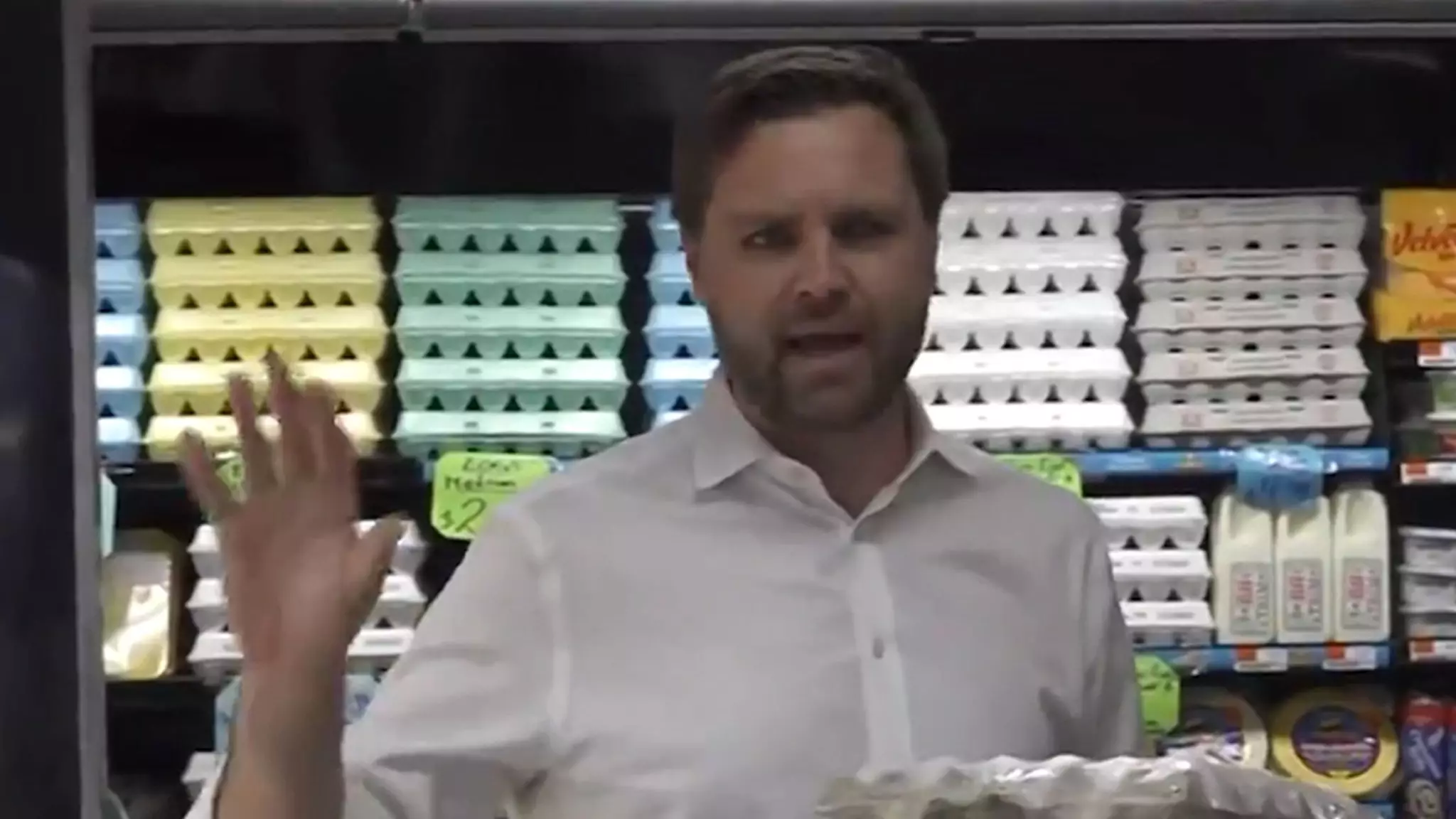In the ever-turbulent arena of American politics, public interactions can often lead to disastrous consequences, and Ohio Senator J.D. Vance has recently found himself embroiled in controversy over his remarks about grocery prices. During a visit to a grocery store in Reading, Pennsylvania, Vance aimed to connect with voters by discussing the rising costs of essentials, specifically eggs. However, his attempt appears to have backfired, igniting a wave of criticism that highlights not only the accuracy of his claims but also the potential repercussions of political misinformation.
Vance’s assertion that egg prices soared to $4 per dozen under the Biden administration quickly drew skepticism—especially when sharp-eyed social media users pointed out that the price was actually $2.99 in the store where he was speaking. This incident serves as a perfect example of how misrepresenting facts can compromise a politician’s credibility. While the average cost of eggs in Pennsylvania may hover near $5 per dozen in 2023, claiming that grocery prices are solely reflective of the current administration’s policies oversimplifies a complex economic landscape and undermines a nuanced discussion about inflation and supply chain issues.
In addition to questioning the factual basis of his statements, observers are also compelled to scrutinize Vance’s personal anecdotes. His claim that his children consume 14 eggs every morning not only raised eyebrows—it’s a significant deviation from nutritional guidelines, which recommend consuming just 3 to 4 eggs per week. This contradiction begs the question: Are Vance’s statements genuinely reflective of his lifestyle, or is he resorting to hyperbole in an attempt to connect with constituents?
What makes Vance’s blunder even more noteworthy is its context within a broader trend of awkward public engagements. This is not an isolated incident; back in August, Vance faced backlash for his strange encounter at a Georgia donut shop. Critics lambasted him for both his mannerisms and ambiguous ordering style, an encounter that ultimately detracted from his campaign message. The combination of these missteps presents a troubling pattern, one that appears to suggest a lack of authentic engagement with the public. For a candidate aspiring to win the trust of voters, genuine connection is crucial.
As the 2024 election cycle looms on the horizon, the stakes are exceptionally high for candidates affiliated with the Trump campaign, especially as they attempt to redefine their narratives in light of the current political climate. Vance’s grocery store faux pas underscores a critical need for more careful management of public appearances, especially if further miscommunications threaten to overshadow campaign strategies. Adjusting course now may be vital if the goal is to regain voter confidence and present a unified front ahead of the elections.
In essence, J.D. Vance’s recent venture into a grocery store serves as a cautionary tale of the political dangers associated with misinformation and unrealistic claims. As political discourse intensifies, candidates will need to be ever-more diligent in their messaging—because in today’s digital age, a moment’s slip can be immortalized and scrutinized for all of eternity.


Leave a Reply